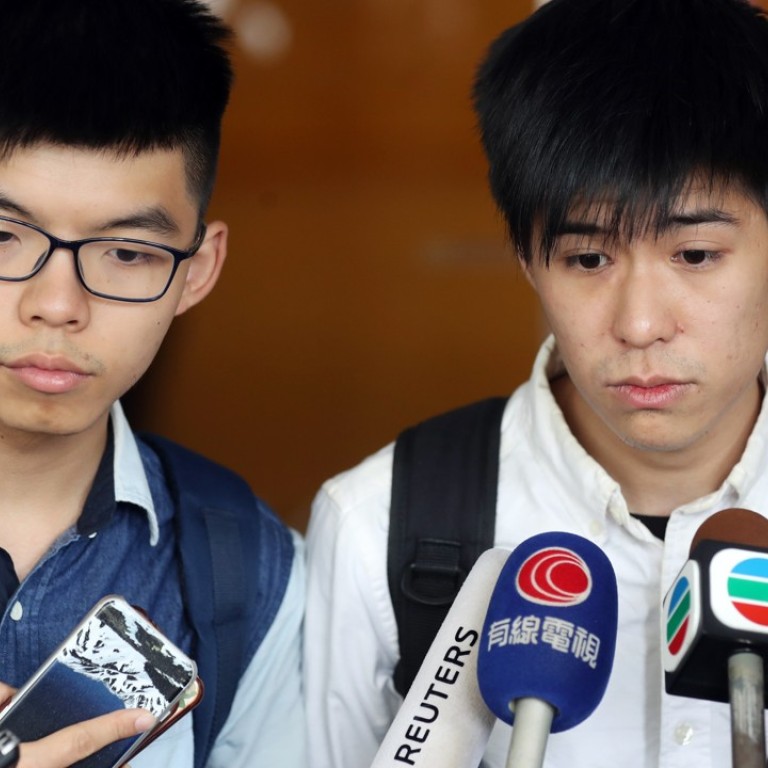
Hong Kong student leaders Joshua Wong, Lester Shum and five others admit to contempt of court in Occupy case
Defence lawyers urge for a jail sentence not exceeding three months so that Wong can still run in future Legco elections
At the High Court, lawyers for Wong also urged the presiding judge not to pass a jail sentence of more than three months, citing their client’s aspiration to run in future Legislative Council elections.
Senior Counsel Lawrence Lok Ying-kam was referring to the Legislative Council Ordinance, which bars anyone jailed for more than three months in Hong Kong to run for office within five years of the offence.
Along with Wong, Lester Shum, former secretary general of the Hong Kong Federation of Students, also admitted to liability for committing contempt of court.
On Thursday Lok said Shum offered his unreserved apology for his actions, and argued that Wong had “a noble motive”.
Five others – all young people ranging from an aspiring civil servant to a football player – also admitted liability and offered their unreserved apologies.
They are Chau Wan-ying, Cheung Kai-hong, Choi Tat-shing, Chu Wan-lun, and Jason Szeto Tze-long, who was a student activist at the time.
The seven were among a larger group of people arrested when bailiff officers, acting on a court order sought by taxi and minibus drivers, were clearing a protest site on Nathan Road on October 26, 2014.
The road in Mong Kok was a major protest stronghold during the 79-day civil disobedience movement that brought parts of the city to a standstill.
“Wong caught the attention of Hong Kong when he was the convenor of Scholarism,” Lok said, referring to his client’s previous student activist group. Shum led the Occupy movement as a leader of the federation.
Lok said the pair took to the site on the day out of concern for protesters’ safety. While there, they merely wanted to make clarifications through a microphone to confirm the identity of the bailiffs, as well as to find out whether people were regarded as items of obstruction.
He asked Mr Justice Andrew Chan Hing-wai to take into account Shum’s attempt to urge people not to swear. Wong, he said, tried to make his way out at one point, before he was arrested.
Lok added that even although the two were well-known at the time, they did not resort to “using their personal fame to incite people”.
Summing up, the counsel said none of the seven had engaged in any physical violence, and therefore urged the court to impose a fine instead.
Four more people were expected to admit liability next week, while nine others, including Rafael Wong Ho-ming, vice-chairman of political party the League of Social Democrats, were to stand trial this month, starting Friday.
Chan adjourned sentencing until the end of the trial.
He said the group would have to first see if their chairman Nathan Law Kwun-chung, a legislator facing the government’s legal challenge, would be stripped of his seat.

